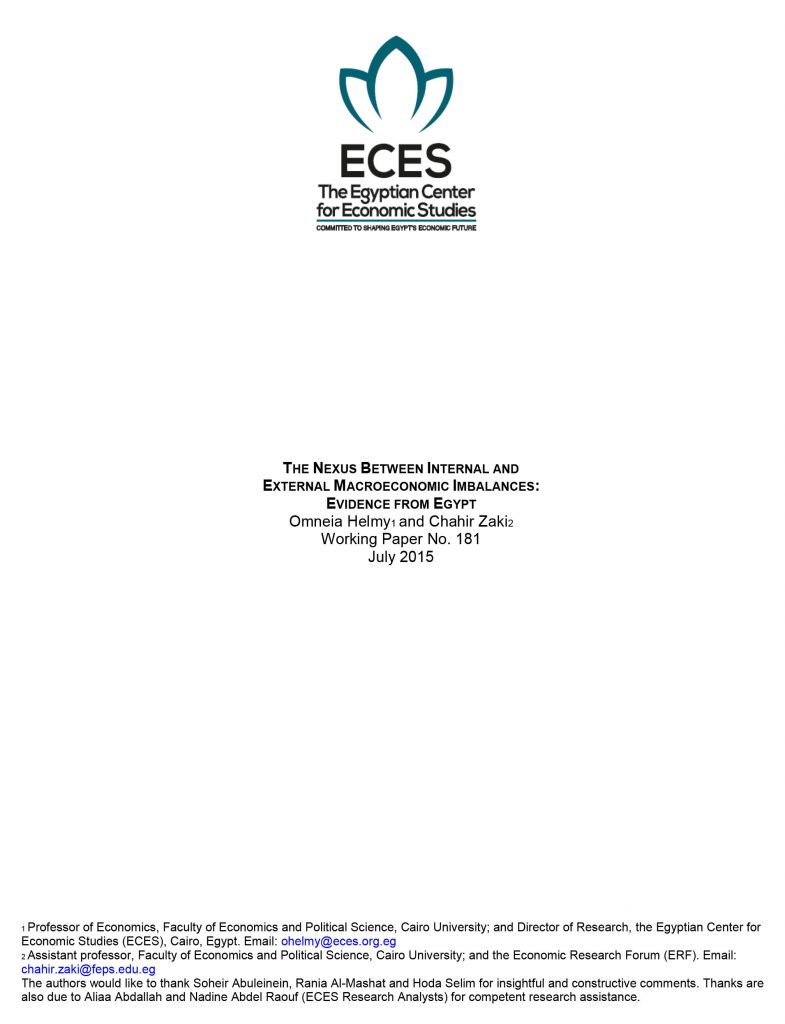Abstract:
This paper examines the nexus between internal and external imbalances of the Egyptian economy by testing both the twin deficit hypothesis and the Feldstein-Horioka paradox. Using quarterly data (between 2002 and 2014) in order to capture the short term dynamics that might affect the Egyptian economy, a Granger causality test and an errorcorrection model are run in order to determine both the short term adjustment and thelong run relationship between internal and external imbalances. Our main findings show that the twin deficit hypothesis is rejected and a reversed causality running from the current account to the budget deficit exists. This is chiefly attributed to the fact that Egypt relies more on domestic sources to finance its deficit rather than external sources. Moreover, the Feldstein-Horioka puzzle is partially rejected since Egypt, while not being perfectly integrated in the world capital market, has a high degree of capital mobility. Yet, it is still characterized by several restrictions that reduce capital mobility.

